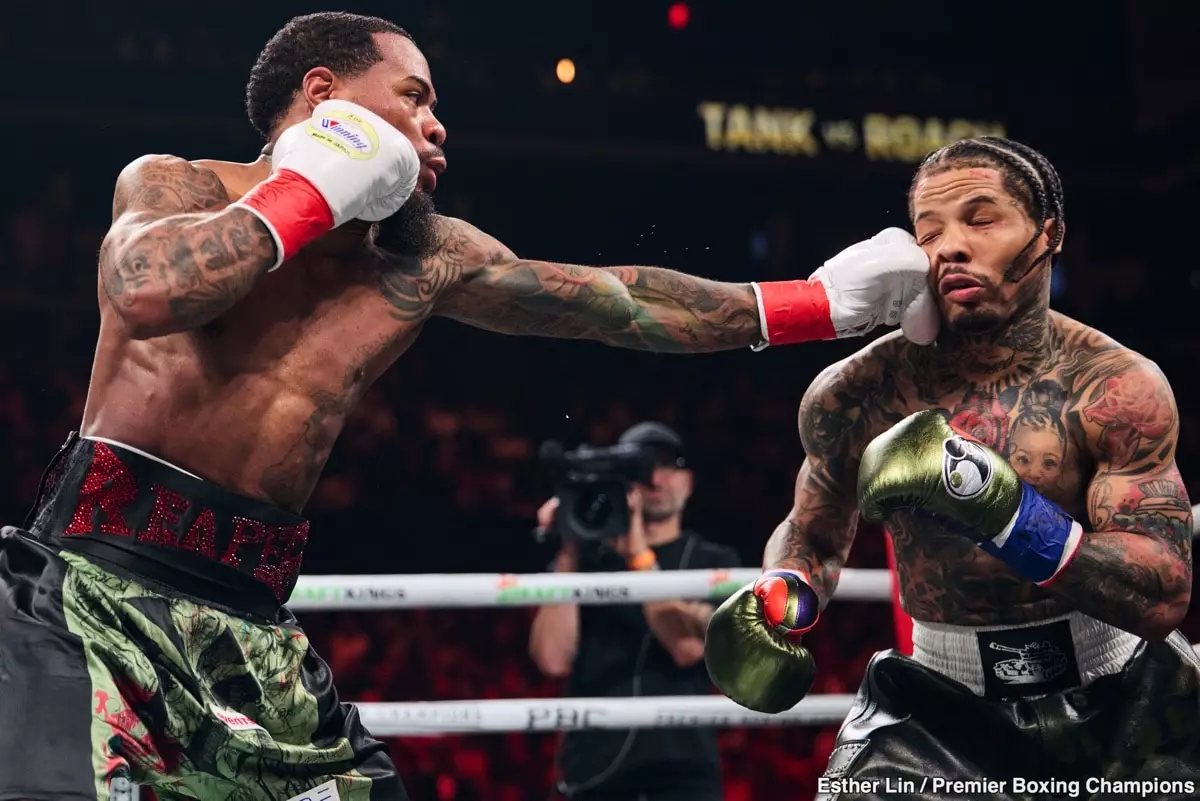In a boxing landscape increasingly dominated by exhibition matches and celebrity spectacles, the upcoming bout between Gervonta “Tank” Davis and Jake Paul exemplifies the crumbling boundaries between genuine sport and entertainment. While fans eagerly anticipate this clash on Netflix, it’s essential to scrutinize whether the anticipated fireworks are rooted in boxing prowess or manufactured theatrics. The disparity in technical skill and experience between the two fighters is glaring, with Davis, a bona fide champion and seasoned professional, vastly surpassing Paul in craft and ring intelligence. Yet, the allure of a social media star stepping into the ring with a legitimate champion fuels the narrative of an underdog story, which, frankly, is more fiction than fact.
This matchup, in truth, seems designed more to boost viewership and capitalize on the YouTuber-turned-boxer’s massive following than to challenge the best of the sport. The fight may generate record-breaking numbers and stir public discourse, but it risks trivializing years of dedication, sacrifice, and skill that define true boxing excellence. For those seeking a genuine contest, the reality is that Davis will be the favorite — perhaps an overwhelming one — and any result beyond a decisive Tank victory would be a shock. However, the spectacle’s true value isn’t in the outcome but in how it reflects the evolving nature of boxing promotion and fandom.
Garage-Style Promotions and the Erosion of Authentic Competition
The rise of celebrity bouts like Davis vs. Paul signals a troubling trend — the prioritization of spectacle over skill. It’s a commodification that cheapens the sport’s integrity because it shifts focus from development, discipline, and competition toward adrenaline-pumping entertainment designed for mass appeal. Fans are increasingly fed a narrative that boxing is accessible for everyone, which can be inspiring, but it also risks diluting the sport’s core values by elevating personalities over prowess.
For boxing purists, the fight raises concerns: Is this truly what the sport has become? Will future fighters be judged more on their social media following than their technical ability? While a crossover event can introduce new audiences to the sport, it shouldn’t come at the expense of meaningful matches that build legacy and respect. Davis, at his best, is a boxer with undeniable talent and the potential for greatness, yet some speculate he may be more interested in payday opportunities than legacy-building fights. This thinking exacerbates the blurry line between sport and spectacle, ultimately undermining the fighters committed to honing their craft.
The Shadow of Untapped Potential and Unfulfilled Opportunities
While lucrative bouts dominate headlines, the real casualties are the fighters whose careers are sidelined by the quest for easy money. Lamont Roach Jr., a talented contender with a commendable record, finds himself caught in this cycle of missed opportunities. His frustration about being ducked by Davis isn’t mere whining; it’s a reflection of the frustration felt throughout boxing’s competitive tiers. Roach’s social media frustrations reveal a truth many insider fans recognize — that financial allure often trumps meritocracy.
Roach’s current situation underscores a broader issue: fighters with genuine talent are often left waiting or pushed aside while promoters chase sensational headlines. His recent verbal agreement to face WBC champ Shakur Stevenson offers a glimpse into a more authentic path — fighters fighting the best instead of celebrities. Such matchups could restore credibility and reignite the sport’s competitive spirit. Ultimately, the sport’s true heartbeat lies in stories like Roach’s, fighters striving for greatness amid an increasingly complicated commercial landscape.
The Future Landscape of Boxing: Disruption or Decline?
As boxing shifts toward spectacle-driven events, questions loom about the sport’s future. Will the audience sustain its interest when battles are decided more by marketability than merit? While some may argue that the crossover appeal heralds a new era of inclusivity and innovation, others see it as a Trojan horse that threatens the sport’s authenticity. If boxing continues to prioritize star power and viral moments over skill and history, it risks losing its core audience of dedicated fans.
The current trend suggests a market hungry for spectacle and controversy, yet it’s vital to remember that boxing’s greatest moments weren’t built on hype alone but on challenges, rivalries, and grit. For the sport to thrive long-term, it must find a balance where entertainment complements, rather than replaces, authentic competition. As promotional tactics evolve, so too must the fighters and fans who demand integrity and respect. Without that, boxing risks devolving into a glorified sideshow, where true greatness is overshadowed by fleeting sensationalism.


Leave a Reply